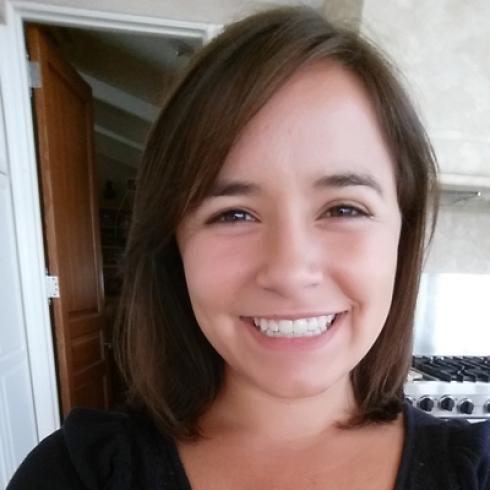After a road trip of long talks, roadside adventures, and plenty of food with my host mom, I'm back in Santiago and registering for classes. This semester I'll be taking the third level Spanish course offered by IES Abroad (SP403). My Spanish has advanced more rapidily than ever over the last seven months. Of course, improving my Spanish was one of my main reasons for coming abroad. So many people go abroad to learn a language, and I've noticed how being abroad has immersed me:
- Spanish Class: May seem obvious, but I have to acknowledge how much my IES Abroad course last semester helped with my adjustment to the language and culture. I had an amazing professor and a class I looked forward to. We didn't just study and memorize grammar; we compared cultures, discussed politics, and expanded a vocabulary specific to Chile. Our conversations ranged from topics like the Chilean dictatorship to the Chilean dating culture.
- Making Local Friends: As nice as it is to spend time with classmates, you won't pick up a Chilean accent from them. I took a while to realize just how much my Chilean friends had taught me, because I have so much fun with them I forget I'm learning. They challenge my sometimes shy, perfectionist personality, and I've learned to ask with confidence when I don't understand a word or recognize a reference.
- Music: I love singing along to music and you can find just about any genre in Spanish. Although there's music to listen to from all over Latin America and Spain, Chile has some great artists as well. Gepe, Francisca Valenzuela, and Chico Trujillo are just a few of the many popular artisits.
- Movies: While you'll probably watch many movies and TV series dubbed or subtitled here in Chile, I think it feels great to watch works orginally filmed in Spanish. I highly recommend watching the web series Gringolandia to anyone who is familiar with US and Chilean culture; the first two seasons are on YouTube, so take advantage of this hilarious, bilingual show.
- Beginning the Day in Spanish: I have noticed a huge difference in my fluency on days I begin in Spanish versus English. While living abroad, the first conversation I have or the first thing I read isn't usually in English which has contributed greatly to my language development. One friend suggested to me, listening to music in Spanish first thing in the morning to consciously start the day thinking in the language.
I should acknowledge, of course, that I have been learning Chilean Spanish, known here as el castellano chileno. This means I have expanded a vocabulary useful to only Chile. I found an online dictionary of chilenismos: http://www.mainframe.cl/diccionario/diccionario.php. However, two fantastic words do not appear on this site:
Whatsappear (verb): to send someone a message via the app Whatsapp.
Po (interjection): Used for emphasis, the closest traslation is "well." Chileans use this word more than any other.
I should make a special mention of the word weon as it is easily the most versatile word I now know. Its uses include: refrencing a person, a thing, or nonesense, greeting a friend, insulting someone, and more. This word exists as a noun, adjective, and verb. Amazingly enough, people can have full conversations with some form of weon as every third word. A linguistic marvel if you ask me...
Of all the language skills I have deveoped thus far, confidence has easily been the most important. Confidence has made for more fluid conversation and has created many more learning opportunities for me. I am excited to see how much more I progress by the end of this semester!

Katherine Ram
I study Physics and Spanish at the University of the Pacific. When not studying, all I want to do is dance or get outdoors. I've moved to Santiago to get the best of everything: city, mountains, beach, desert, and more!








